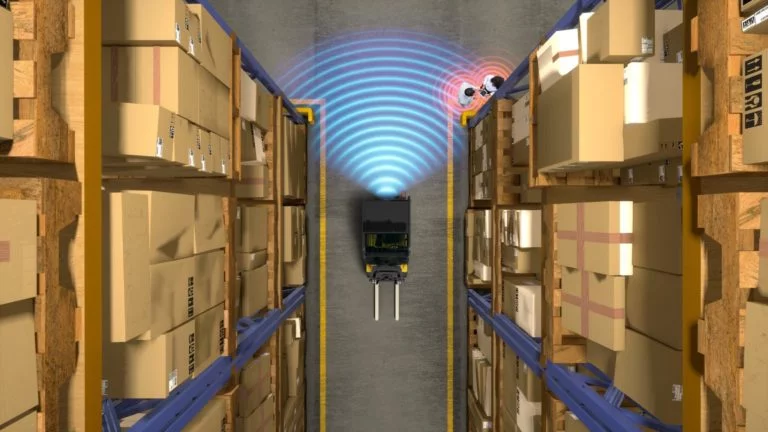The focus of this year’s LogiMAT trade fair appearance by ROCKETSOLUTION is the innovative RSX1 shuttle system. The very robust small parts storage system for loads up to 50kg is characterised by maximum compaction of the storage locations and low susceptibility to faults. It can be flexibly scaled and easily integrated.
With its flagship product RSX1, ROCKETSOLUTION says it continues to be on the road to success. Currently, eight projects are being rolled out in companies from the automotive, retail, industry, fashion and third party logistics sectors. ROCKETSOLUTION can be found in Hall 1 at Stand A35.
Whether it’s a distribution centre, decentralised buffer storage, micro-fulfilment centre in urban areas or for manufacturing automation: the RSX1 shuttle system can be used to automate small parts warehouses to great advantage. It offers maximum compaction with the highest possible system performance. Compared to conventional shuttle systems, the RSX1 reduces the required space by more than half and increases efficiency and profitability in small parts storage. It can store up to 30m high, up to six times more than height-restricted cube systems.
“At the moment, eight systems are being installed or are already in live operation at our customers from different industries. From highly dynamic RSX1 systems as a full expansion to ultra-flexible roaming systems, both variants of our system are installed,” says André Nowinski, Managing Director of ROCKETSOLUTON. The company, which has been active on the market since March 2021, works together with its partners in Germany, Austria, Switzerland, France, Italy, the Netherlands, Slovakia, Slovenia, Spain and Sweden. “The number of integration and distribution partners has now grown to nine,” adds Florian Vent, founder and managing director of ROCKETSOLUTION.
With the flexible RSX lifts, up to 1,500 storage and retrieval operations per hour and aisle are possible, depending on the configuration. Thanks to the standard four-deep storage, the system requires significantly less space while maintaining the same performance. The ultra-compact design also allows the usual aisle clearances to be halved. The intelligent container arrangement, space-saving lifter transfers without additional conveyor technology in the racking as well as intelligent maintenance accesses further reduce the unused space in the storage system. The flexible storage depths and the variably installable lifts also make it possible to adapt to difficult structural and spatial conditions.
A new type of load handling device, which does not push the containers into the racking, ensures that the containers guided in the racking are lifted in and out particularly safely and precisely. This ensures additional process reliability (no “dancing dead”) and reliable system availability.
Due to its design, the RSX1 already works from a container height of 100mm without any loss of space. With identical storage space, it offers up to 100% more storage capacity than conventional shuttle systems. As a result, companies can benefit from reduced operating costs and a better eco-balance when using an RSX1 system.
At LogiMAT, ROCKETSOLUTION Managing Director André Nowinski will be available to discuss the latest developments, innovative projects and the future strategy of the technology manufacturer.














